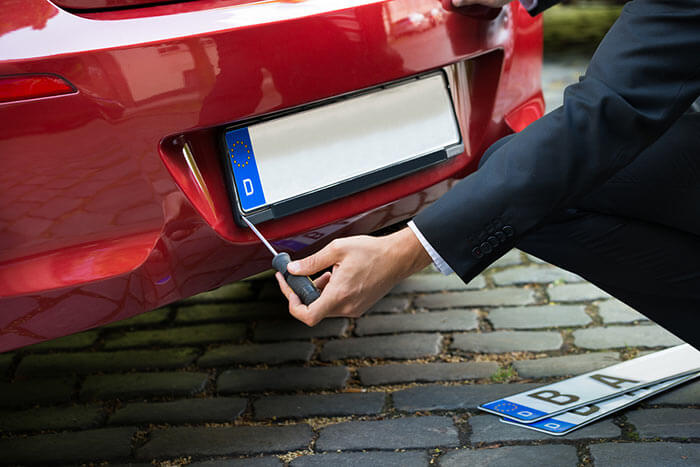Criminals are increasingly stealing vehicles and passing them off as genuine through a process known as cloning. We explain how to ensure you’re not caught out.

Car buyers are being warned to avoid falling victim to the growing menace of vehicle cloning – a crime that could leave them thousands of pounds out of pocket.
Police in England have recently smashed a national cloning ring which had carried out frauds worth more than £2 million on the south coast and in West Yorkshire.
ID fraud for cars
But although one gang has been brought to justice, experts say that there is evidence that cloning is on the rise in the UK – and buyers should therefore be on their guard.
Cloning involves vehicles being stolen and then effectively being given a new identity.
Criminals disguise the 17-digit Vehicle Identification Number (VIN) on the stolen car and then use a stolen V5 logbook in an attempt to legitimise its identity.
In this way, it is much harder to check that a vehicle up for sale has been acquired illegally.
No chance of money back
If someone buys a cloned car which is later identified as having been stolen, they face having the vehicle returned to its rightful owner with no chance of getting their money back.
Last month, police arrested six people at addresses in Leeds, Bradford and Bournemouth in connection with the theft and cloning of 180 vehicles.
According to West Yorkshire Police, the gang had been operating for almost seven years.
Spokesman Detective Superindendent Pat Twiggs said: “The operation was focused on vehicles being stolen, primarily in the south of England, without keys using specialist equipment.

‘Not just premium cars’
“They were then transported to Leeds where they were professionally cloned using the identities of legitimate vehicles and sold to innocent buyers through used car publications and websites.”
Neil Hodson, deputy managing director for automotive data firm Cap HPI, said: “Police recovered an Aston Martin Vantage worth £38,000 and an Audi Q7 worth £16,000, showing the range of prices and just how much consumers have to lose on buying a clone.
“But it’s not just premium cars that are at risk from cloning: every used car buyer needs to be aware of the very real threat of cloning.”
Do your homework
“Many buyers are just too trusting and buy a car on face value, which could cost them dearly,” he said.
According to HPI , used-car buyers should ensure they view the vehicle at the registered keeper’s address as shown on the V5 logbook.
They should be wary of any vehicle which is being sold at around 70% of the market value or lower, and should also avoid paying by cash if possible.
Cloning to escape prosecution
Finally, buyers should check whether the V5 logbook is genuine – the HPI Check, for example, analyses DVLA records to ensure the logbook has not been recorded as stolen.
Reports suggest that cloned cars are also being used by criminals to avoid prosecution for motoring offences.
In a recent case, a motorist from north London escaped a fine and points on his licence when he was able to prove that a BMW caught speeding in Lincolnshire was not being driven by him and had in fact been cloned.
The motorist’s innocence was demonstrated by anti-fraud firm APU, which used telematics data from the cloned vehicle to show it was still in London when the offence took place.
APU spokesman Neil Thomas said: “It’s very satisfying to help out innocent motorists of course, but the real worry here is that cloning could be back on the rise again.
“It’s usually linked to large-scale organised crime, and it’s hard to stamp out because the clone is registered to the innocent owner’s address, so you have to catch the crooks out on the road.
“However, we believe criminals are increasingly using cloned cars so that innocent drivers shoulder the blame for their inexcusable driving.”